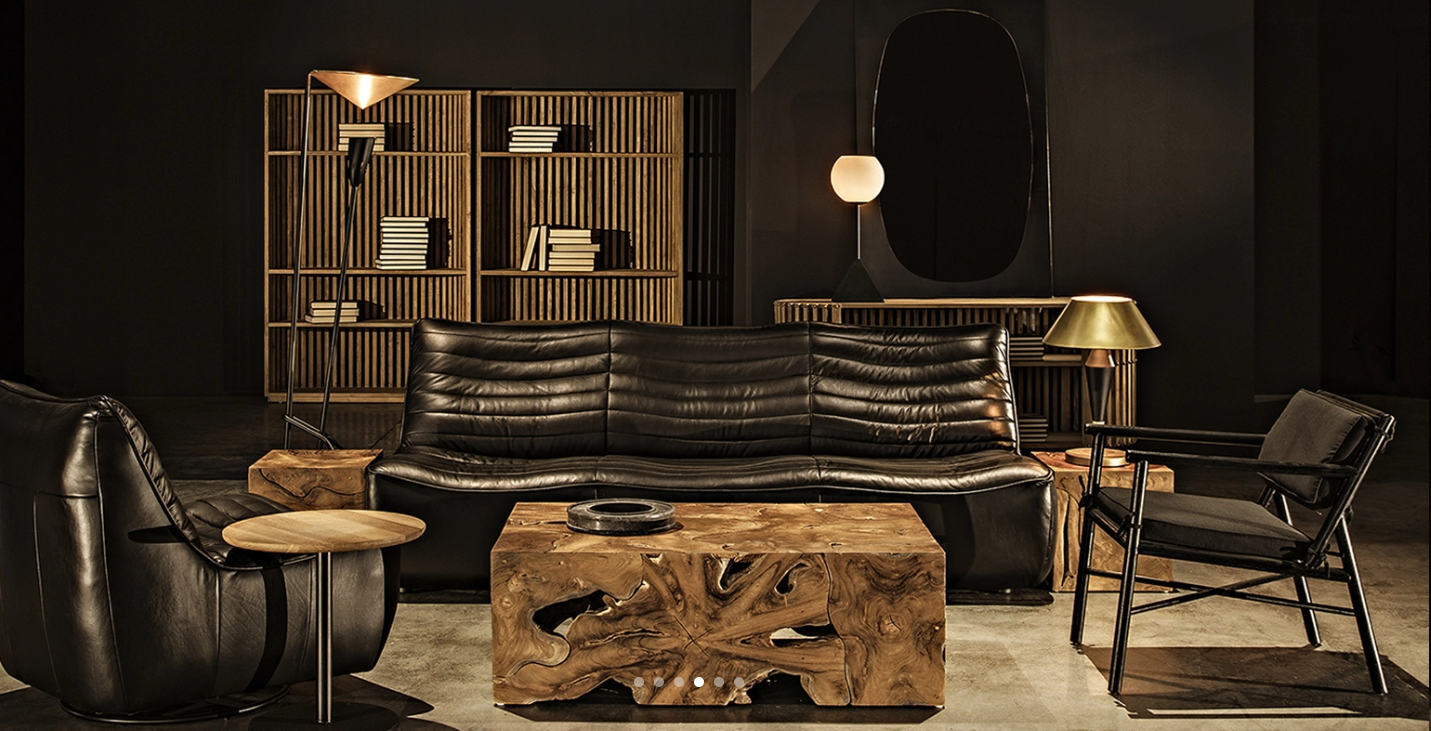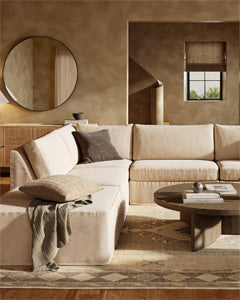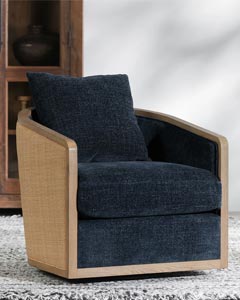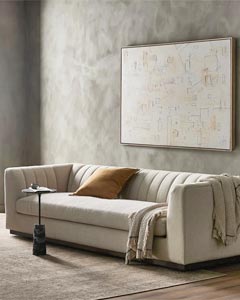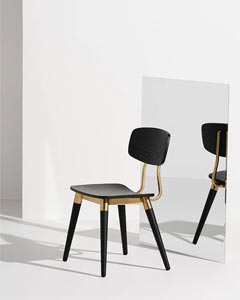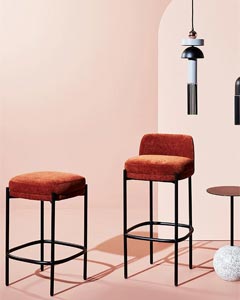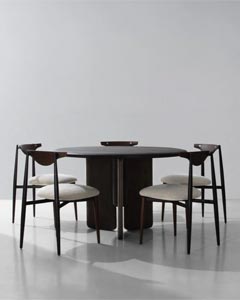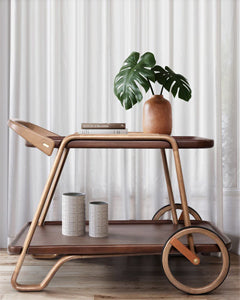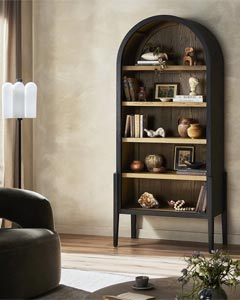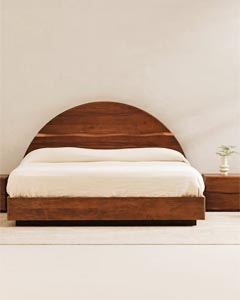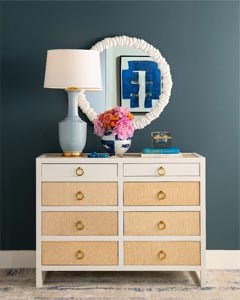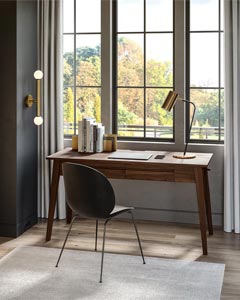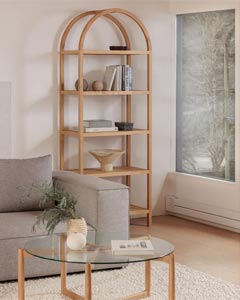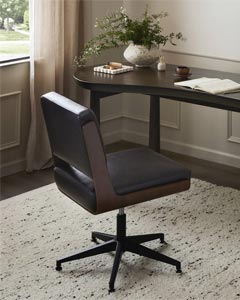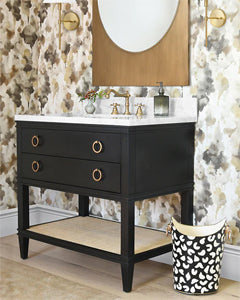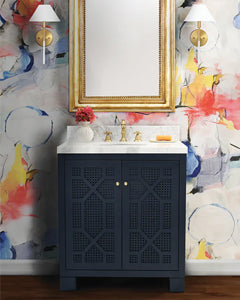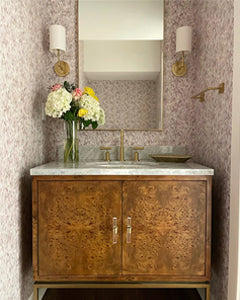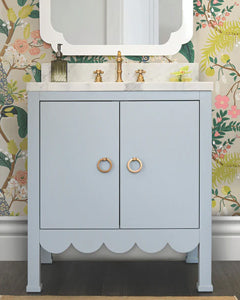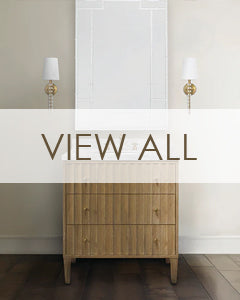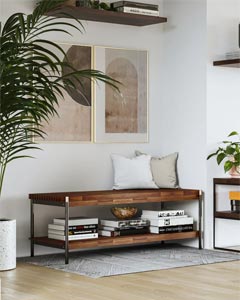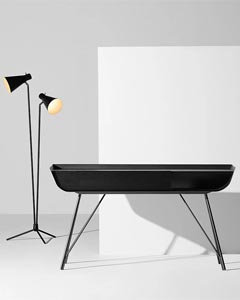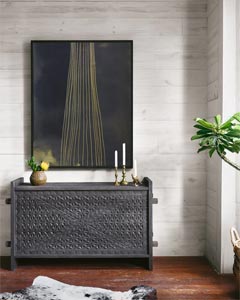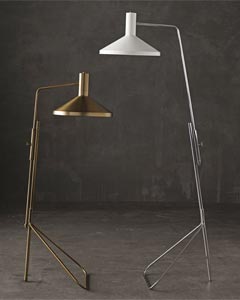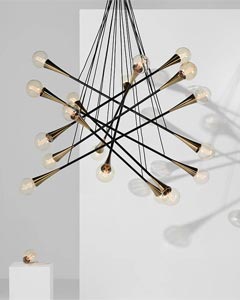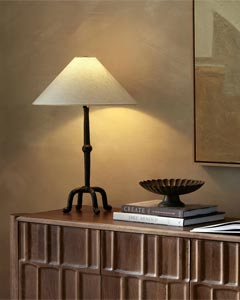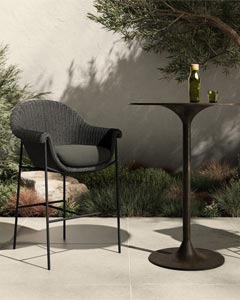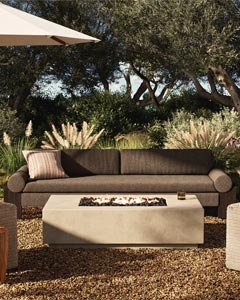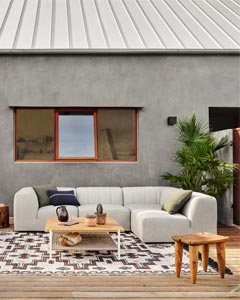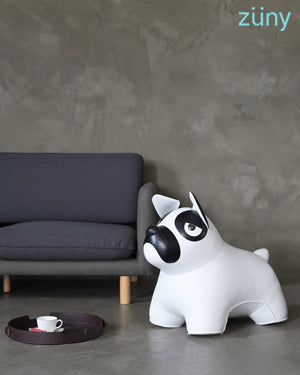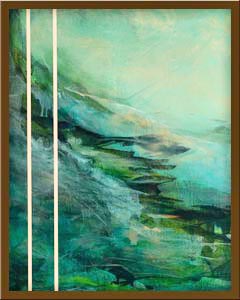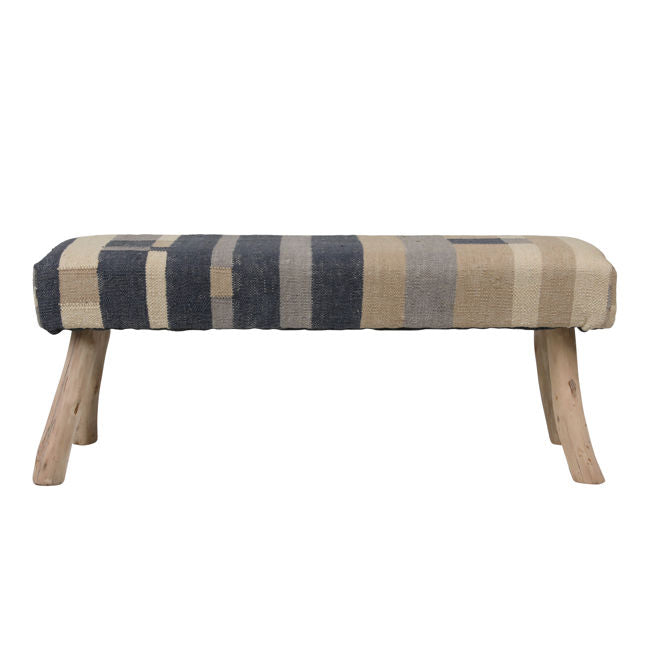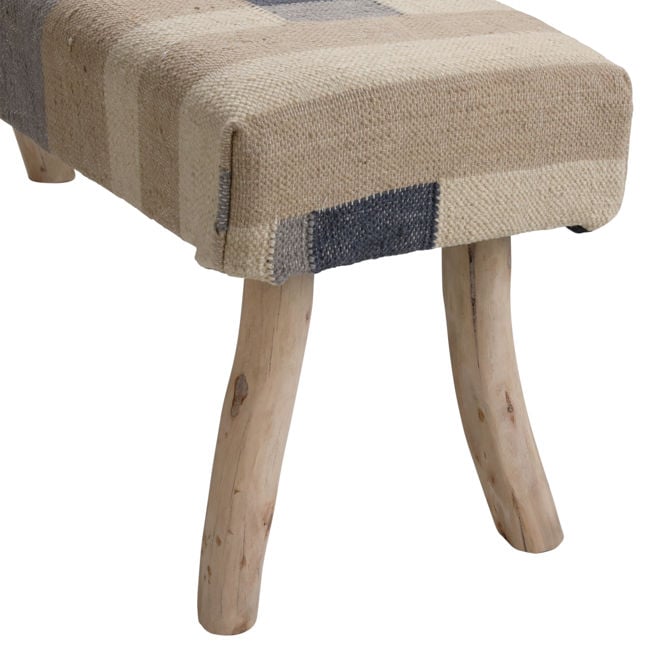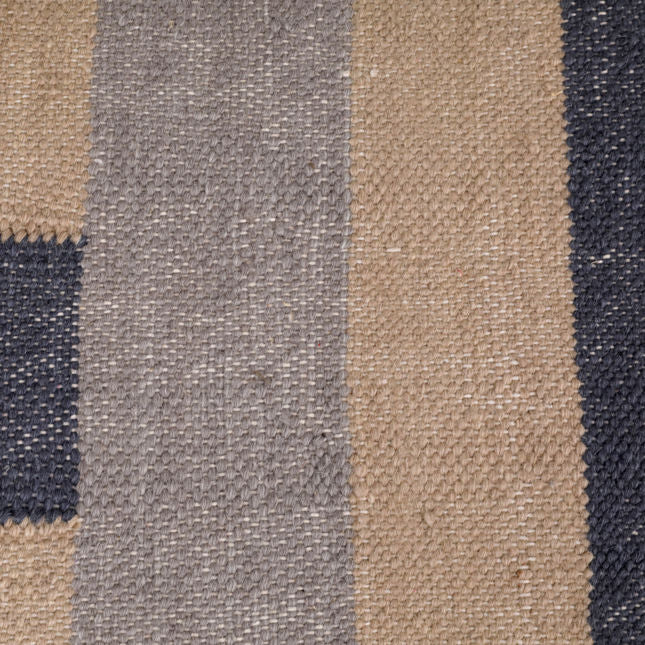Choose options
Features:
Material: Handwoven Punja Kilim Wool and Eucalyptus Wood
Finish: Multicolor
Dimensions:
Width: 48"
Depth: 16"
Height: 19"
Volume: 8.5 cu ft
Weight: 30.5 lbs
At Dovetail Furniture, we take pride in crafting furniture that seamlessly blends classic designs with traditional construction techniques. This synergy ensures the longevity and timeless beauty of our pieces. Our furniture boasts a rustic charm, and it may feature minor imperfections that contribute to the character and allure of each item. The natural patina that develops over time only enhances the uniqueness of your cherished furniture.
To preserve the enduring beauty of your Dovetail Furniture, we recommend following these simple guidelines:
Use Coasters and Placemats - Always use coasters and placemats, especially on dining tables and coffee tables, and on any surface where a glass might be placed. Promptly clean up spills to prevent staining.
Manage Humidity - Wood is sensitive to seasonal humidity changes, which can lead to warping. Maintain consistent humidity levels to prevent any such issues with your wood furniture.
Cleaning - Many of our wood-based items are sealed, providing a durable surface that can be easily wiped clean with a dry cloth.
Natural Finish - Some of our pieces are intentionally designed to have a more natural appearance. These items are often crafted from reclaimed materials and feature a simple sanded finish with minimal or no wax or sealer. For these pieces, it is essential to use coasters and placemats. If splinters occur, lightly sand them with #320 sandpaper.
Regular Maintenance - Occasional wiping with a soft cotton cloth will help maintain the unique character of your furniture. If you wish to apply a protective finish, we recommend using mineral oil or wax. Please be aware that this may alter the tone and texture of the wood.
Finish Specific Care - Remember that wood care requirements vary depending on the finish technique. Care for your wood furniture in accordance with its specific finish to ensure its longevity and enduring beauty.
Avoid Prolonged Sun Exposure - Protect your furniture from direct sunlight exposure, which can lead to fading and potential damage. Position your items away from harsh sunlight or use window coverings to shield them.
Outdoor Product - Use a proper outdoor cover when left outside during inclement weather to avoid warping or splitting.
Teak wood is a smart and stylish solution for outdoor furniture, known for its durability and time-tested quality. Over time, teak reveals a beautiful natural patina, developing a silvery-grey hue when exposed to the elements. This attractive change speaks to the material's organic nature and does not affect its integrity. Here are some essential care instructions to keep your teak furniture looking its best:
General Maintenance
- Immediate Spill Management: Address spills immediately by wiping them with a soft, dry cloth.
- Regular Cleaning: Clean as needed with warm, soapy water, and dry with a soft, clean cloth.
- Avoid Harsh Cleaners: Do not use harsh cleaners or abrasives.
- Water Management: Do not let water stand on the surface of the piece.
Weathering and Aging
Natural Aging: Expect hairline cracking, peeling, and joint expansion as the teak furniture ages. Aging timelines depend on weather variables, climate, and exposure.
Patina Development: When exposed to the elements, teak will develop an attractive silvery-grey hue, which enhances its natural beauty.
Peeling and Bubbling: As the finish wears, peeling or bubbling may occur. Gently clean with a soft, natural bristle brush in the direction of the grain to remove the peeling finish. This will expose the raw wood, allowing it to silver and blend back with the finish in 1-3 months.
Seasonal Care
Protective Covering: Once your furniture is clean and fully dry, protect it with a well-ventilated cover during inclement weather and when not in use.
Weathered Furniture: When your furniture piece has fully weathered, no additional care is required. Consult a furniture technician if you wish to revive the natural color.
Staining Precautions
Cushion Staining: Teak oil and dust can stain cushions. Until your teak has properly acclimated to the environment, we recommend removing the cushions from the frames when not in use. Cleaning Before Use: During the first months of this natural process, clean the teak before placing the cushions on the frames to avoid staining.
Given the nature of reclaimed wood, there may be slight variations in color and texture, uneven grain, knots, or stains. Due to fluctuation in temperature and moisture, there might be separations and splits in the wood grains. Natural imperfections that only add to the beauty and essence of the product.
Care Instructions
- Dust the furniture regularly with a soft cloth.
- Address spills immediately by wiping with a dry, soft cloth to prevent staining.
- Use coasters, trivets, and placemats for protection against hot or wet items.
- Avoid using abrasive cleaners, chemical solvents, strong detergents, furniture polish and cleaners with bleach.
- Maintain consistent indoor humidity levels to prevent warping or cracking.
- Avoid prolonged exposure to direct sunlight as it may cause finish to change.
- Periodically apply oil and conduct minor repairs to preserve the wood's natural charm.
Our concrete furniture is artfully handcrafted using a blend of aggregate, cement, and water. Each piece showcases the inherent beauty of natural variations in color, shade, and markings. Minor hairline fractures, often accentuated in extreme climates, are a part of concrete's natural character. With time, these items will develop a distinctive patina, enhancing the individuality and charm of their material.
Care Instructions
- Clean regularly with a damp cloth and mild, non-abrasive cleaners.
- Address spills immediately by wiping with a dry, soft cloth to prevent staining.
- Use coasters, trivets, and placemats for protection against hot or wet items.
- Avoid prolonged exposure to direct sunlight to prevent fading.
- Avoid excessive force or sharp impacts that may chip or crack the surface.
Terrazzo is a composite material that consists of chips of marble, quartz, granite, glass, or other suitable material. Given the distinctive variety found in terrazzo, no two pieces will appear exactly alike. Variations in color, texture, and pattern are what make each piece truly one-of-a-kind.
Care Instructions
- Regularly dust with a soft cloth to prevent dirt buildup.
- Use a mild, pH-neutral cleaner or a mixture of warm water and mild dish soap for routine cleaning.
- Address spills immediately by wiping with a dry, soft cloth to prevent staining.
- Use coasters, trivets, and placemats for protection against hot or wet items.
- Avoid excessive force or sharp impacts that may chip or crack the surface.
- Avoid prolonged exposure to direct sunlight to prevent fading.
- Use a proper outdoor cover when left outside during inclement weather.
Marble is a natural stone that is quarried from mountains all over the world. Given the distinctive nature found in marble, no two pieces will appear exactly alike. Variations in color, texture, pattern, and density are what make each piece truly one-of-a-kind.
Care Instructions
- Regularly dust and use a mild, pH-neutral cleaner for cleaning.
- Address spills immediately by wiping with a dry, soft cloth to prevent staining.
- Avoid acidic substances that can etch the surface.
- Consider occasional resealing based on the type of marble.
- Use coasters and placemats to protect from heat and moisture and avoid placing heavy objects on it.
- Avoid excessive force or sharp impacts that may chip or crack the surface.
- Shield from direct sunlight to prevent fading and use a proper outdoor cover in inclement weather.
Bluestone is a type of rock that is formed by the fusing of particles deposited by rivers, oceans and lakes. Given the distinctive variety found in bluestone, no two pieces will appear exactly alike. Variations in color, texture, and pattern are what make each piece truly one-of-a-kind.
Care Instructions
- Regularly clean with a soft, lint-free cloth.
- Use a mild, pH-neutral cleaner or a mixture of warm water and mild dish soap for routine cleaning.
- Address spills immediately by wiping with a dry, soft cloth to prevent staining.
- Consider sealing bluestone as needed for enhanced stain resistance.
- Avoid excessive force or sharp impacts that may chip or crack the surface.
- Shield from direct sunlight to prevent fading and use a proper outdoor cover in inclement weather.
Items made from natural woven materials like seagrass, banana stalk, rattan, bamboo, and water hyacinth undergo a weaving process that intricately interlaces the materials to create a distinct, textured layer. Given the distinctive variety found in weaving, no two items will appear exactly alike. Variations in color, texture, and pattern are what make each piece truly one-of-a-kind.
Care Instructions
- Regularly dust with a soft, dry cloth and gently clean with a damp cloth using mild, soapy water.
- Avoid prolonged exposure to direct sunlight to prevent fading.
- Use indoors or shield from rain, humidity, and direct sun if used outdoors.
- Inspect for loose strands, and promptly repair any damage for lasting beauty and integrity.
Proper care for your upholstery ensures longevity and maintains its pristine appearance. Understanding the cleaning codes helps you choose the right method for spot cleaning and overall maintenance. Here are guidelines tailored to each cleaning code:
W - Water-Based Cleaning:
- Spot clean only with water-based shampoo or foam upholstery cleaner.
- Pretest a small, inconspicuous area before proceeding.
- Do not over wet and avoid using solvents for spot cleaning.
- Brush pile fabrics with a non-metallic, soft bristle brush to restore appearance.
- Cushion covers should not be removed and laundered.
- Regular vacuuming or light brushing with a non-metallic brush is recommended to remove dust and grime.
- When cleaning a spill, blot immediately to remove spilled material.
- Evenly clean the entire panel in a seam-to-seam fashion.
S - Solvent-Based Cleaning:
- Spot clean only with a water-free dry-cleaning solvent.
- Pretest a small, inconspicuous area before proceeding.
- Do not saturate and DO NOT USE WATER for spot cleaning.
- Brush pile fabrics with a non-metallic, soft bristle brush to restore appearance.
- Cushion covers should not be removed and dry-cleaned.
- Regular vacuuming or light brushing with a non-metallic brush is recommended to remove dust and grime.
- When cleaning a spill, blot immediately to remove spilled material.
- Evenly clean the entire panel in a seam-to-seam fashion.
WS - Water or Solvent Cleaning:
- Spot clean with upholstery shampoo or dry-cleaning solvent designed for furniture.
- Pretest a small, inconspicuous area before proceeding.
- Do not saturate and avoid hot water extraction or steam cleaning.
- Brush pile fabrics with a non-metallic, soft bristle brush.
- Cushion covers should not be removed and laundered or dry-cleaned.
- Regular vacuuming or light brushing with a non-metallic brush is recommended to remove dust and grime.
- When cleaning a spill, blot immediately to remove spilled material.
- Evenly clean the entire panel in a seam-to-seam fashion.
X - Vacuum or Brush Only:
- Clean only by vacuuming or light brushing with a non-metallic, soft bristle brush.
- Do not use water.
- Do not use solvent-based cleaner.
- Basic Care: Blot spills gently with a dry cloth; our performance fabrics ensure spills bead up for easy cleaning.
- Stubborn Stains: Dampen a cloth with warm water and blot gently; change cloth frequently until the stain fades. Air dry.
- Tough Stains: Dampen a cloth with warm water and mild dish soap; blot gently and rotate cloth to absorb. Air dry.
- Specialized Stains: Dampen a cloth with warm water and mild laundry detergent; blot gently and rotate cloth to absorb. Air dry.
- General Tips: Avoid bleach and harsh chemicals; refrain from dry cleaning or steam ironing.
Care Instructions
- Use a soft damp cloth that is clean for regular cleaning.
- Wipe dry after cleaning to prevent moisture damage.
- Tables with lacquer, paint, or stain on the wood's surface are susceptible to dents and scratches.
- Use trivets, coasters, placemats, and felt pads to protect your furniture.
- We do not recommend using finish polish, as it can accumulate over time, leaving a residue on the furniture.
Care Instructions
- Use a soft damp cloth that is clean for regular cleaning.
- Wipe dry after cleaning to prevent moisture damage.
- Treat your furniture twice a year with a natural wax or when the wood seems dry.
- Apply the wax with a clean white cloth, following the direction of the wood grain.
- Using another cloth, buff the excess wax to reveal a smooth finish.
